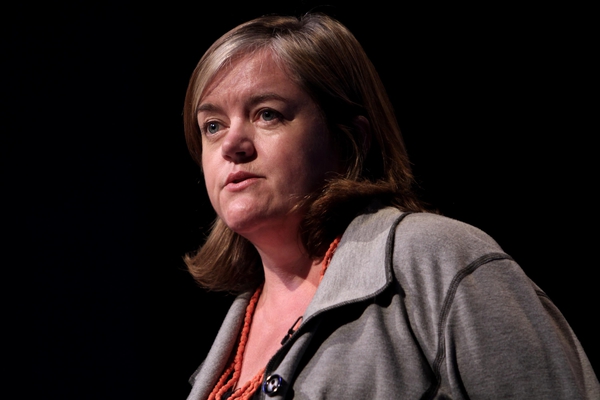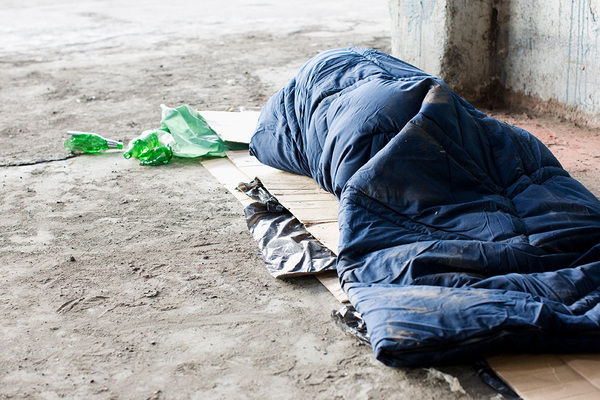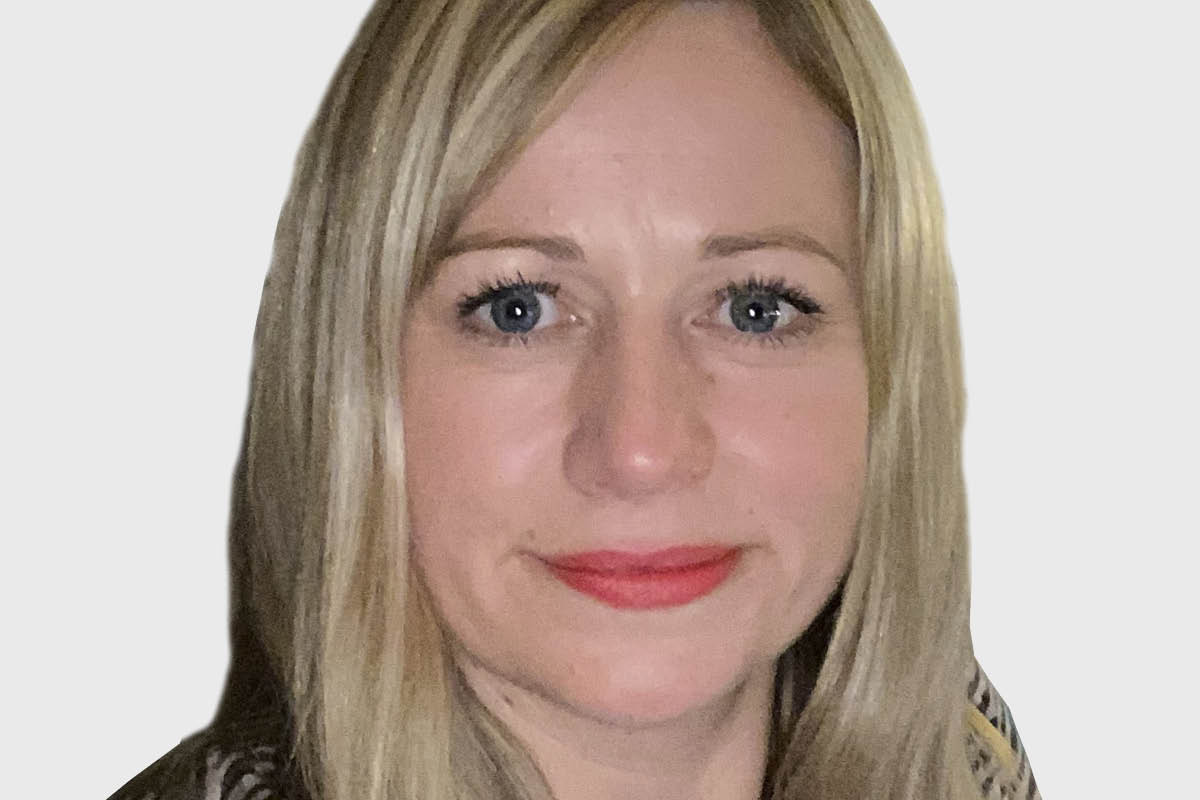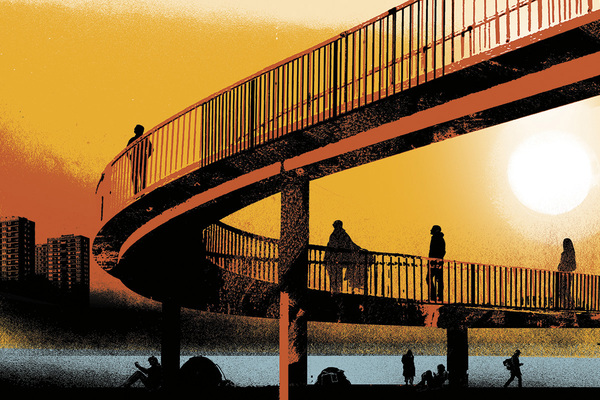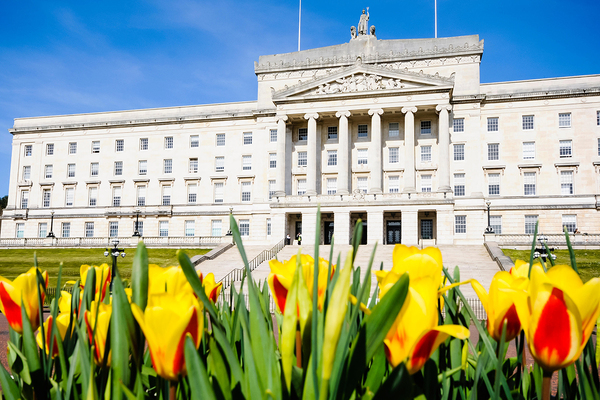You are viewing 1 of your 1 free articles
Leading health and homelessness groups warn of ‘risk to life’ for those forced to sleep rough this winter
Seventeen of Britain’s leading health and homelessness organisations are urging ministers to provide funding for self-contained accommodation for rough sleepers this winter over fears that lives will be at risk from the “double threat” of coronavirus and cold weather.
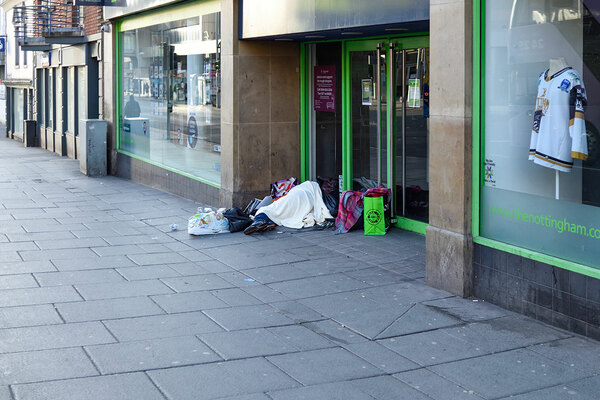
The group, which includes Crisis, St Mungo’s, the British Medical Association and a member of the government’s Scientific Advisory Group for Emergencies, has written an open letter to the prime minister asking him to take “similar bold action” to that taken in the first wave of the pandemic when councils were ordered to close communal shelters and house all rough sleepers in hotels.
The letter said: “Failing to protect people in unsafe living conditions over the winter months poses a grave risk to life and will place an enormous and avoidable pressure on the NHS.
“We cannot rely on winter shelters this year to accommodate people sleeping rough. We are concerned that despite the best efforts of shelters to adhere to social distancing, they are designed as communal spaces which makes social distancing and self-isolation extremely difficult.”
It pointed to a recently published study in The Lancet which found that 266 deaths were avoided during the first wave of the pandemic in England due to the efforts to house homeless people in self-contained accommodation.
Comparisons were also made to a study by the Coalition for the Homeless in New York City, which found the mortality rate from coronavirus for people staying in shelters was 61% higher than the rate among the general population.
The letter continued: “Now, with cases of coronavirus once again rapidly rising across England, combined with the threat that winter already poses to the health of people sleeping rough, we are urgently calling on you to ensure that local authorities can provide people sleeping rough with safe, self-contained accommodation during the pandemic.
“This must be followed up with increased funding, which is critically needed to enable local authorities to provide effective support.”
It comes amid fears that the ending of the government’s furlough scheme, combined with the eviction ban being lifted, could lead to a spike in people becoming homeless over the winter.
Earlier this week, London mayor Sadiq Khan wrote to housing secretary Robert Jenrick demanding guidance for winter night shelter providers, alongside funding to provide self-contained accommodation.
Commenting on the letter, Jon Sparkes, chief executive of Crisis, said: “Without government action, the reality of what could happen this winter is terrifying. Predictions of deaths among people who have nowhere else to go, other than our streets, or sleeping in communal night shelters that are not COVID-secure, must act as a wake-up call to government.
“We cannot have hundreds, or even thousands, of people forced to live in crowded places, where proper social distancing is impossible and the risk of coronavirus transmission is incredibly high.
“The Everyone In scheme saw unprecedented efforts to protect people and undoubtedly saved lives – this must be repeated. As we face a second wave of coronavirus, government must provide somewhere for each and every person sleeping on our streets to live and self-isolate safely.”
Professor Andrew Goddard, president of the Royal College of Physicians, said: “This winter is set to be one of the hardest we’ve faced, particularly with the added pressure of COVID-19. For those who are homeless, or who have been pushed into homelessness by the pandemic, the threat is even more acute.
“We know that the efforts made to support homeless people during the first phase of the pandemic were truly life-saving. As we enter a second wave of COVID-19, these steps need to happen again.
“Without urgent action from the government to keep homeless people off the streets this winter, lives will most certainly be lost.”
A government spokesperson said: “We’re determined to protect the most vulnerable in society – we took decisive action during the pandemic to protect hundreds of lives by bringing nearly 15,000 people into safe accommodation.
“Councils have been given over £4.8bn of emergency funding to deal with the immediate pressures of the pandemic, including support for rough sleepers, and over £91m in funding for interim accommodation and support services for those at risk of rough sleeping.
“Working with councils, charities and other partners, we will protect vulnerable rough sleepers this winter and fund longer-term accommodation and tailored support to end rough sleeping for good.”
Sign up for our daily newsletter
Already have an account? Click here to manage your newsletters
